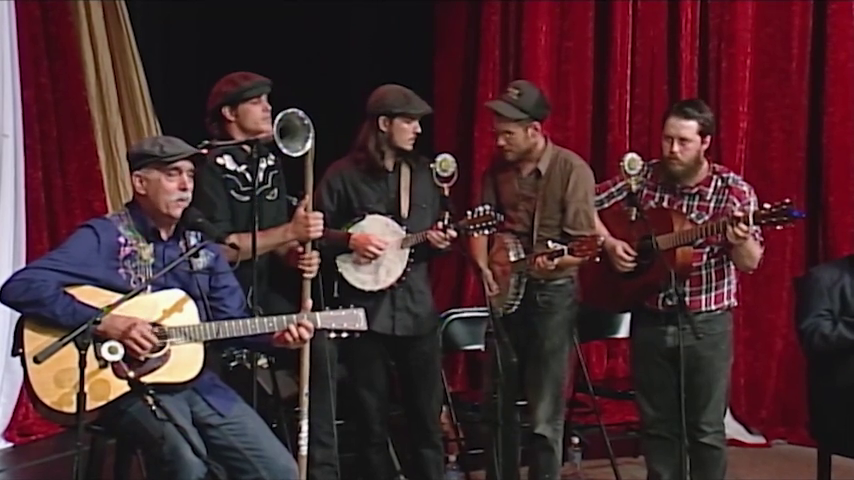Menu

Jug bands got their name from using instruments that were either homemade or household items such as a jug. Beginnings in the South in the 19th century, with origins in Louisville, KY, they were made up predominately of African-American musicians and were in their heyday from the 1890s to the Great Depression. Playing a mixture of blues, ragtime, and jazz, jug bands were some of the first musicians to record and a key contributor to the evolution of blues and early rock and roll. The folk revival in the 60's launched a second wave of jug-band music and it continues to exist and evolve today. On this WoodSongs broadcast, we'll be celebrating the music and history of jug bands with musicians from across the country. JIM KWESKIN is a folk music legend and founder of the legendary 1960s Jim Kweskin Jug Band which successfully transformed the sounds of pre-World War II rural music into a springboard for their good-humored performances. Their imitators were legion, including The Grateful Dead, Nitty Gritty Dirt Band, the Lovin’ Spoonful and more. These days Jim is best known as a singer and bandleader, but he also created one of the bedrock guitar styles of the folk revival. JERRON “BLIND BOY” PAXTON transforms traditional jazz, blues, folk, and country into the here and now. Hailing from NYC, his sound is influenced by the likes of Fats Waller and "Blind" Lemon Jefferson. According to The Wall Street Journal, Paxton is "virtually the only music-maker of his generation—playing guitar, banjo, piano and violin, among other implements—to fully assimilate the blues idiom of the 1920s and ‘30s." THE STEEL CITY JUG SLAMMERS made a name for themselves in Birmingham, AL with a new album, extensive touring and the band's recent induction into the Jug Band Hall of Fame.